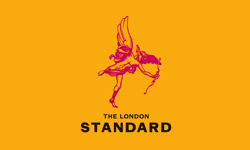Brien Beharrell said that as editorial director of the Newbury Weekly News Group, the reputation of her papers and journalists in the local community was important. If journalists made a mistake, she said, “the news goes round like wildfire, and you can’t go back to that source again without some very hard work”.
New reporters were quickly working remotely and were required to file to websites and social media, making it harder for them to get help from colleagues. Brien Beharrell said she wanted trainees to have an understanding of the ethical issues they would face when they start work.
“The industry needs it, we need it and the trainees need it,” she told the seminar, which was held at Microsoft’s London offices on Friday, 14 June.
Heads of Journalism were given an opportunity to debate the changes needed when the NCTJ introduces a module in practical journalism ethics into the syllabus for its Diploma in Journalism from September.
NCTJ chief executive Joanne Butcher confirmed that assessment of the module would initially be integrated into the existing mandatory units of the diploma – including the Reporting exam and e-Portfolio – rather than through a separate ethics exam, although that remained an option for the future.
Amanda Ball, principal examiner for the NCTJ, told the seminar: “We were talking about a separate exam. That is still a possibility, but there was a general feeling that having a distinct assessment in ethics wasn’t the way people wanted to go – it was about embedding ethics into everything that we do.”
The seminar debated the programme of ethics training that will be delivered to students at dozens of courses across the UK. Mark Hanna, chairman of the NCTJ’s media law board, said the aim was to encourage trainees to think for themselves.
The proposed programme of study will give students and trainees an introduction to the underlying ethical principles which underpin responsible reporting, and give guidance on what to do when facing practical issues which fall outside the scope of the law and regulation.
“This is not about ‘you can’t do that’ or ‘you should not do this’. We are hoping this is an empowering document,” he said.
The seminar was also given details of proposed changes to allow the training in practical ethics to be assessed in the Reporting and Media Law and Regulation exams, as well as in the e-Portfolio of stories which all students are required to compile during their NCTJ-accredited training course.
About the National Council for the Training of Journalists
The NCTJ says: “The NCTJ is the leading journalism training organisation. It accredits courses at education and training providers; offers qualifications which guarantee the skills needed in the workplace for entry-level students and trainees through to senior status; fosters continuing professional development for journalists, and provides a range of services and products relevant to its customers.”










